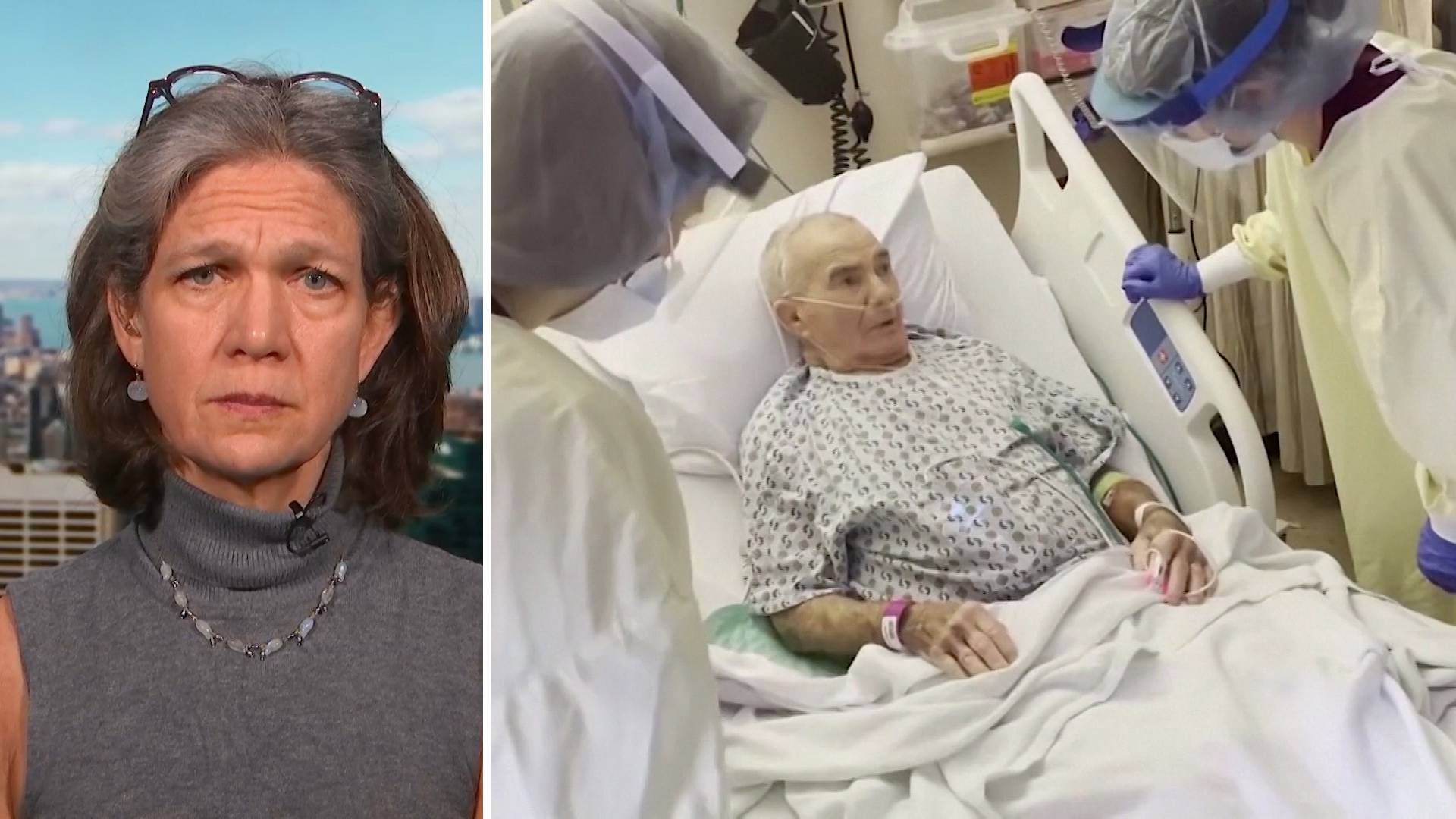The growing problem of crushing medical debt was raised by Senator Bernie Sanders in a national address Tuesday on the American working class. We hear from patients and discuss the fight to stop hospitals from suing patients, garnishing wages and putting liens on homes of people facing medical bills they can’t afford. We are joined by Elisabeth Benjamin, vice president of Health Initiatives at the Community Service Society of New York and co-founder of the Health Care for All New York campaign.
TRANSCRIPT
This is a rush transcript. Copy may not be in its final form.
AMY GOODMAN: This is Democracy Now!, democracynow.org, The War and Peace Report. I’m Amy Goodman, with Juan González.
In a major address Tuesday evening from the U.S. Capitol, independent Senator Bernie Sanders of Vermont gave a national address on the state of America’s working class. He focused in part on the growing problem of medical debt.
SEN. BERNIE SANDERS: I see — I see a nation where over 85 million of our people are either uninsured or underinsured. And as all of you know, we are the only major country on Earth not to guarantee healthcare to all people.
I see a nation where, unbelievably, over 500,000 people go bankrupt each year because of medically related debt. You got that? You were sick, you had a cancer operation, and you know what you get? You go bankrupt as a result. Does that make any sense to anybody?
I see a nation — and we don’t talk about this at all; virtually nobody talks about this — where over 68,000 people die each year because they can’t afford the healthcare they need. I have talked to doctor after doctor, in Vermont and around the country, telling me about patients who walked in the door terribly ill. And the doctor says, “Why didn’t you come when your symptoms — when you first felt your symptoms?” They said, “I don’t have any insurance. I can’t afford to pay it.” And thousands of thousands of people finally crawl into the doctor’s office, and it’s too late, and they die, in the United States of America.
AMY GOODMAN: Senator Bernie Sanders speaking Tuesday night in a major address on the state of America’s working class. To see the whole address, go to democracynow.org.
But today we’re going to look at how more patients are speaking out as they struggle with medical debt. The healthcare reform group We the Patients New York, a project of the Community Service Society, has spoken to many patients. This is Anthony Calafiura’s story.
ANTHONY CALAFIURA: So, slightly over a year ago from now, I was committed to the psych ward after a failed suicide attempt. I was there for 14 days. It genuinely helped me, until I received my bill afterwards. But, thankfully, I was under my estranged father’s insurance. But even then and currently today, I am over $2,000 in debt, and my mother has refused to help me pay, so I have essentially been forced to kind of figure out this whole situation by myself.
And when I was committed, I was 17. So, after I got released, when I tried calling, like, the hospitals, there wasn’t much I could do, because I was still a minor. And it just felt like a circle, and I never really got, like, actual advice on what to do.
Now that I’m 18, it’s been like six months since I’ve been released, so all my debt has been transferred to the debt collection agency. Nobody around me really knows what to do. And this whole situation has just been causing me so much stress. It’s like every time I check my mail, every time I receive an 866 call, which now I know is the debt collection agency’s number, every time I see a minor text, I’m just reminded of how much debt I’m in, and it just makes me really anxious, and it’s been really not good for my mental health, which is why I’m even in debt in the first place, was to get better.
End Medical Debt: Fight Grows to Stop Hospitals from Suing Patients, Garnishing Wages, Ruining Credit




